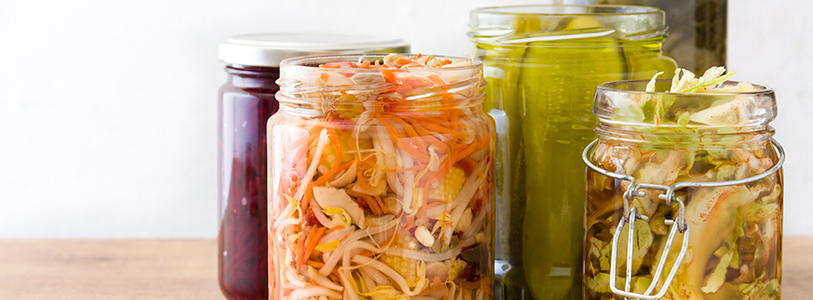Pick your probiotic: Does your gut need more good bacteria?

In the early 20th century, Elie Metchnikoff was dubbed the father of probiotics. Fast-forward to today, and seemingly everyone is touting the benefits of these gut-friendly microorganisms — typically bacteria. Probiotics are commonly offered in supplement form, both to help gastrointestinal (GI) issues and for general health purposes, but they do not affect everyone in the same manner.
More articles from this issue
“Studies have shown benefit only in patients who have a GI disorder or some ailment related to the GI tract,” says Dr. Megha Kothari, gastroenterologist at NewYork-Presbyterian Brooklyn Methodist Hospital. “The most proven digestive benefits are in people with antibiotic-associated diarrhea or traveler’s diarrhea.”
Patients with irritable bowel syndrome (IBS) and inflammatory bowel disease, or ulcerative colitis, may also benefit from probiotic supplements. Ongoing research is investigating whether probiotics are useful for autoimmune disorders, food allergies, and mental health conditions, such as depression or chronic fatigue.
“If you have a specific intestinal disorder or problem, certain strains may be better than others, so guidance from your physician would be beneficial,” Dr. Kothari says. “Also, some people may experience the side effect of diarrhea if they consume too much probiotics in a short amount of time.”
Gut-friendly foods
Probiotic supplements can be expensive and may not be an option for all people, but everyone can try to incorporate additional probiotic-providing foods into their daily diets. Many of these foods are also sources of cancer-fighting antioxidants or nutrients that contribute to bone growth, so they provide benefits beyond maintaining good gut health.
Try these foods that are chock-full of probiotics:
- Fermented vegetable dishes like kimchi or sauerkraut
- Apple cider vinegar
- Yogurt, kefir, and aged cheeses
- Kombucha
- High-fiber foods like chia seeds and flax seeds
- Natto (fermented soybeans)
- Dill pickles
- Traditional salami
“Ask your doctor which probiotic-containing foods might benefit you,” Dr. Kothari says. “If you’re able to, incorporating probiotics naturally through foods and lifestyle modification is probably best.”
Dos and don’ts of probiotics
DO: Eat probiotic-rich foods if you are able. While probiotic supplements do not benefit everyone, nutrient-rich foods do.
DON’T: Use probiotic supplements without speaking to your doctor first. While probiotic supplements typically have few side effects, individuals with chronic illness or suppressed immune systems may be vulnerable to health complications. Safety can also vary by type of probiotic supplement and length of use.
DO: Use a supplement with multiple strains of probiotics if you choose to try supplements. Dr. Kothari also says to look for supplements with a CFU count of at least 2 billion.
DON’T: Smoke or consume excessive amounts of alcohol. It can disrupt your normal gut probiotics, according to Dr. Kothari.
For more nutrition tips, visit nyp.org/nutrition. To find a doctor at NewYork-Presbyterian Brooklyn Methodist Hospital, please call 718-499-2273.





